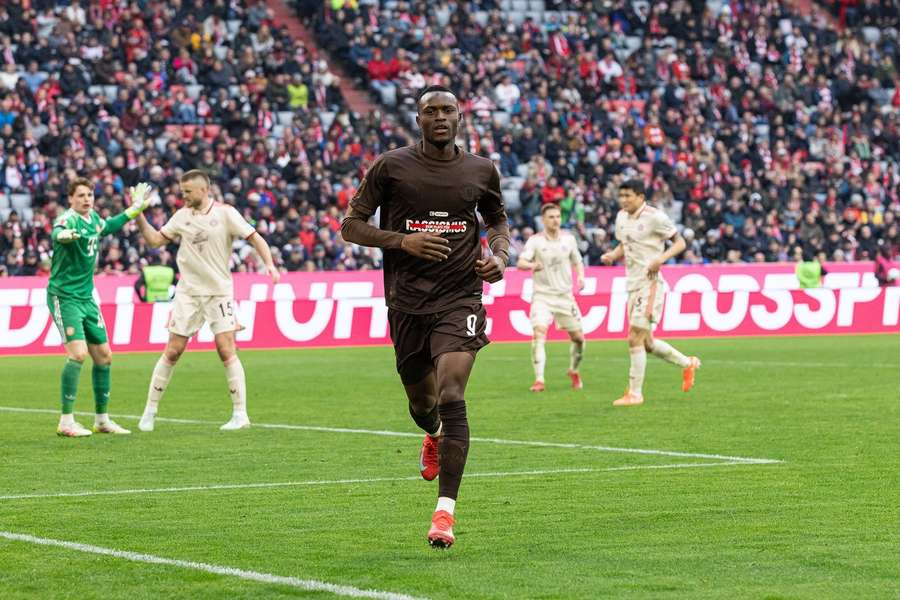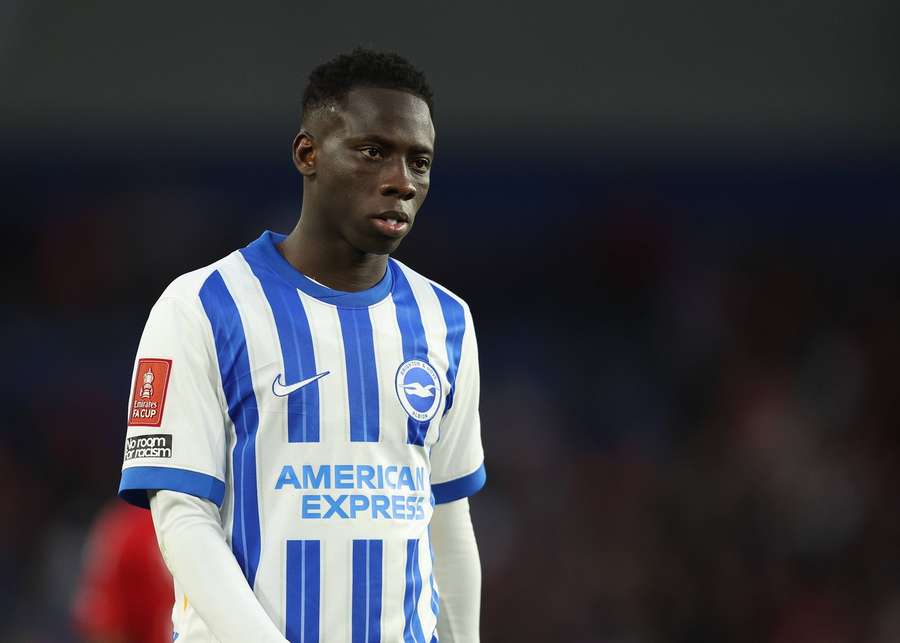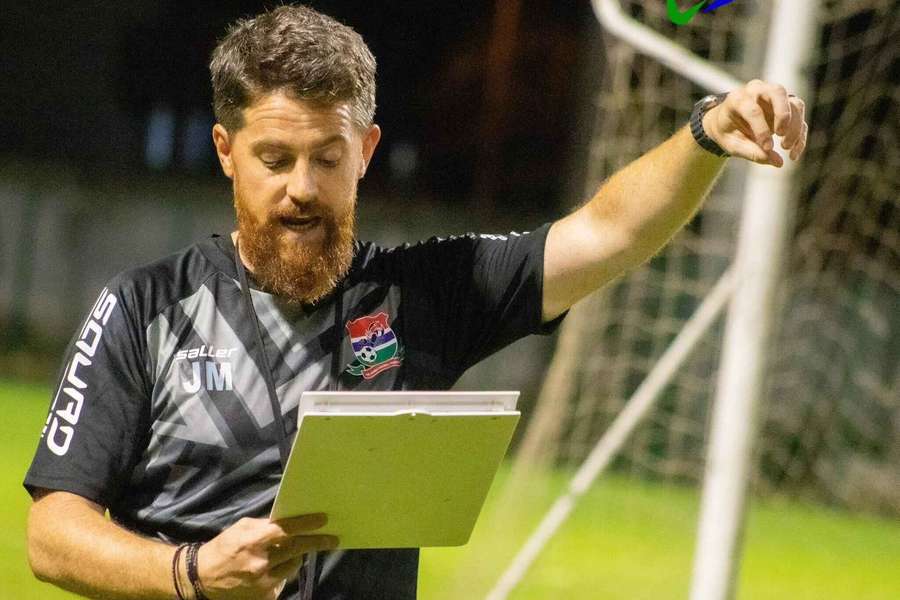The 39-year-old Northern Irish tactician has enjoyed experience of handling teams in East Africa, starting with Rwanda, whom he took charge of in 2015 and guided to a bronze medal during the CECAFA Senior Challenge Cup in the same year.
He started off in 2013 as the head coach of Sierra Leone, whom he guided to their highest-ever FIFA World Ranking position, following the resignation of Swedish coach Lars-Olof Mattsson and then handled Kenya's neighbours Uganda in 2019. During the same year, he guided the Cranes to victory in the 2019 CECAFA Cup, winning all six games throughout the tournament.
East African players not ready to suffer and sacrifice
According to McKinstry, who clinched two Kenyan Premier League titles with record champions Gor Mahia during his stint with the club before quitting to take charge of the Gambia national team, the Scorpions, Kenya and East Africa players are not ready and willing to sacrifice for available playing slots in Europe.
“I think this is also something about the character, sporting character let’s say, and this isn’t just Kenya, this is East Africa in general, because I have seen the same things in Tanzania, Rwanda and Uganda, where I was as well,” McKinstry responded when asked why he thought Kenya and more so East Africans were not producing many players to Europe.
McKinstry further claimed that a good number of players in Kenya and the East African region lacked the desire or zeal to chase professional football abroad compared to players in the West African countries.
“I have been to Sierra Leone, and have been to Ghana, and to Gambia, in West Africa what you see is this anger from young footballers that they simply must make it, when they are 15 years old, they don’t want to play (for example in the Ghanaian Premier League or Sierra Leone Premier League), or the Gambia Premier League.”
McKinstry, who was named Kenyan Premier League Coach of the Year for the 2024 season, continued: “That is not their ambition, they need not want, but they need to go and play in that professional level, and they are willing to suffer there, go and play maybe in a third division Eastern European league, prove themselves and then make the next step, make the next step and make the next step.
“And finances don’t really don’t really come early on, yes they want to be able to earn some money to eat and to live but they are willing to take a small package so that they get into a professional environment, where it gives them a better springboard to Europe.
“Look for example, someone like Abdoulie Ceesay, who is in Gambia squad, at FC St. Pauli in the Bundesliga, last year, or eight months ago, he was in the Gambian league as an 18 to 19 year old, and then he went to Estonia, and a lot of people maybe in the media said why are you going to Estonia?

“But he went to Estonia, scored 17 goals in 20 games in six months, and St. Pauli came and signed him to Bundesliga, so he was willing to take the platform step, the springboard step, but I think in Kenya, and in East Africa, a lot of young players want to go to the top level, but I don’t think they are necessarily willing to sacrifice what needs to be sacrificed.”
Kenya and East Africa leagues pay good money
Another major factor, according to McKinstry, that hinders the influx of players from the region to Europe is the fact that most of their respective leagues pay handsomely, hence tying down players to long-term deals that never give them the opportunity to venture abroad.
McKinstry, whose early career was focused on elite youth development through roles with Newcastle United, New York Red Bulls, the Right to Dream Academy and the Craig Bellamy Foundation, gave examples of Rwanda and Kenyan leagues, which he said players involved could earn up to 10, 000 dollars a month, which was good enough to sustain the player.
“Also the money that clubs like Gor Mahia, the likes of Bandari FC and Kenya Police are paying is descent money, you know it is not nothing, it is definitely higher than what the leagues in West Africa pay, and same when you go into Uganda, and Rwanda, you know there are players in Rwandan league, who earn to 5000 to 6000 dollars a month,” explained McKinstry.
“There are players in the Tanzania league, who earn close to 10, 000 dollars a month, and so the players will be comfortable and say I will take that three or four year contract and I will stay here for my entire career, and yes that is going to improve the levels of the league but it maybe not be going to find out one or two good diamonds to take to Europe.”
He continued: “If you look at Yankuba (Minteh) journey, from Gambia to Odense BK in the Danish league, Odense BK one season then he did very well, and then to Newcastle United, to Feyenoord on loan, and then Brighton & Hove Albion, and he is still only 20 and he was willing to take the challenge, his mentality was I have to go and take on this challenge.

“From my time in Kenya, and especially East Africa, I didn’t necessarily see as many, that is not saying they don’t exist, but there are some young Kenyans, who have that mindset, but for a country of the population size, I don’t think they managed to take as many to Europe.”
So far, Kenya has a sizable number of players in Europe, led by defender Joseph Okumu, who plays for French Ligue 1 side Stade Reims. Other notable figures include defender Richard Odada, who turns out for Serbian SuperLiga club OFK Beograd, on loan from Dundee United, striker Michael Olunga of Qatar Stars League club Al-Duhail, and striker Jonah Ayunga, who plays as a winger for Scottish Premiership club St. Mirren.
Other key players include overlapping defender Eric Ouma, who plays for Ekstraklasa club Raków Częstochowa, right-back Daniel Anyembe of Danish Superliga club Viborg FF, Collins Sichenje of Serbian SuperLiga club Vojvodina, on loan from Swedish side AIK, defender Johnstone Omurwa Otieno, who plays as a centre-back for Abha and striker Masoud Juma of Esteghlal Team in Saudi Pro League.


